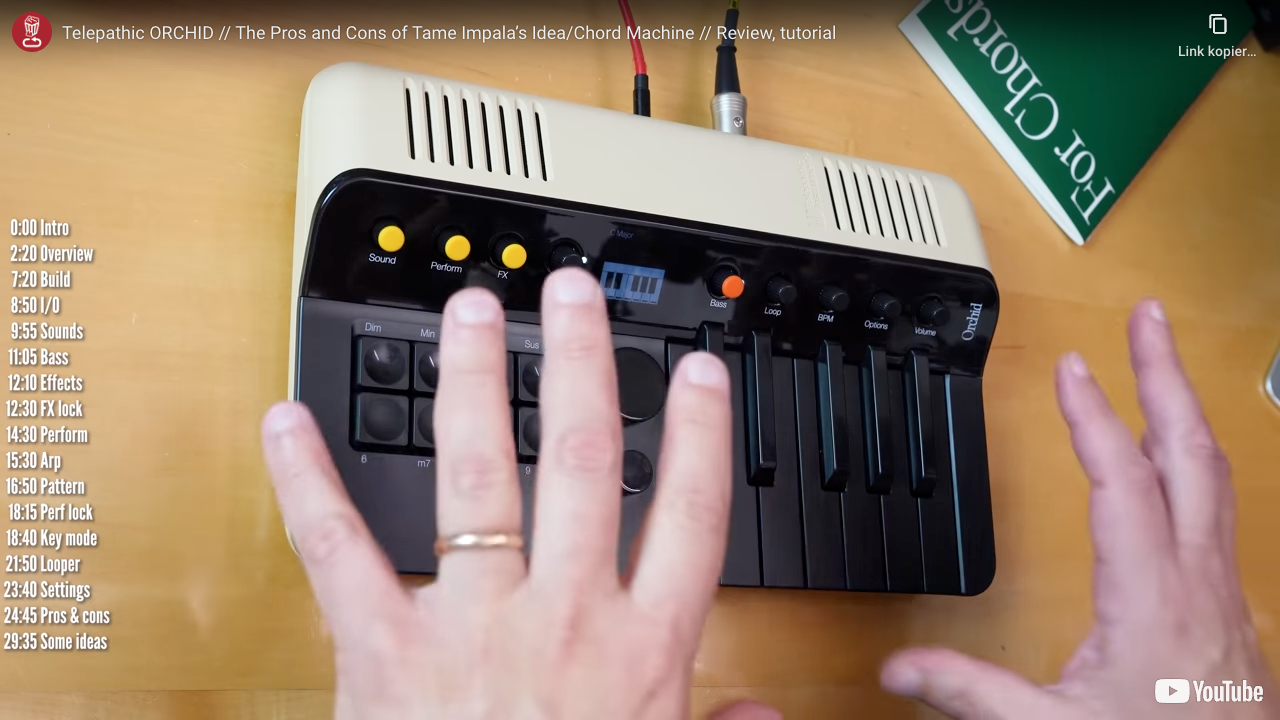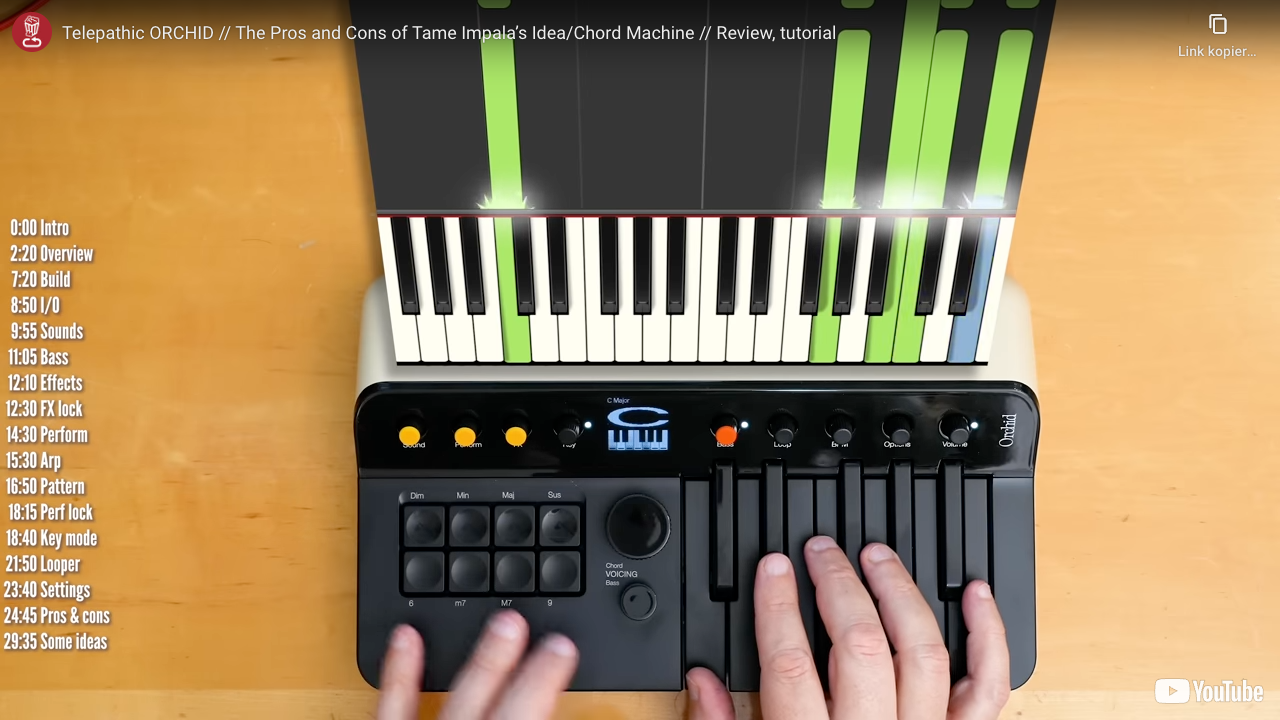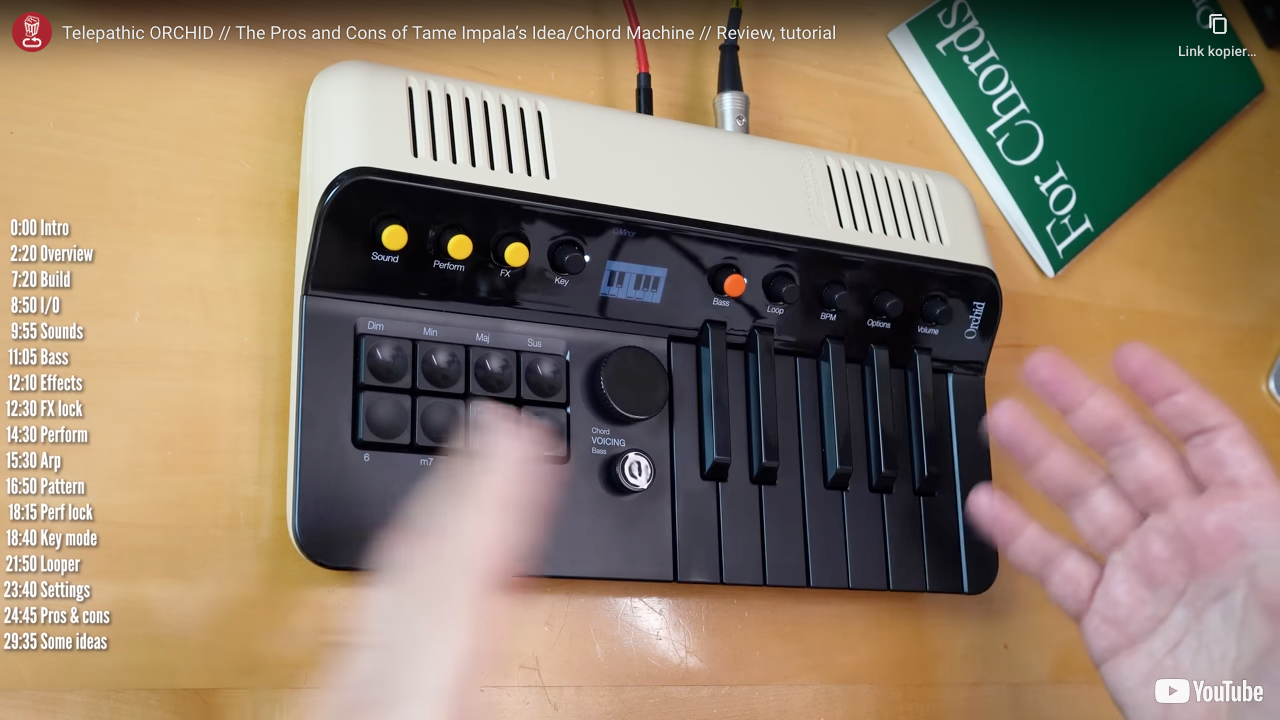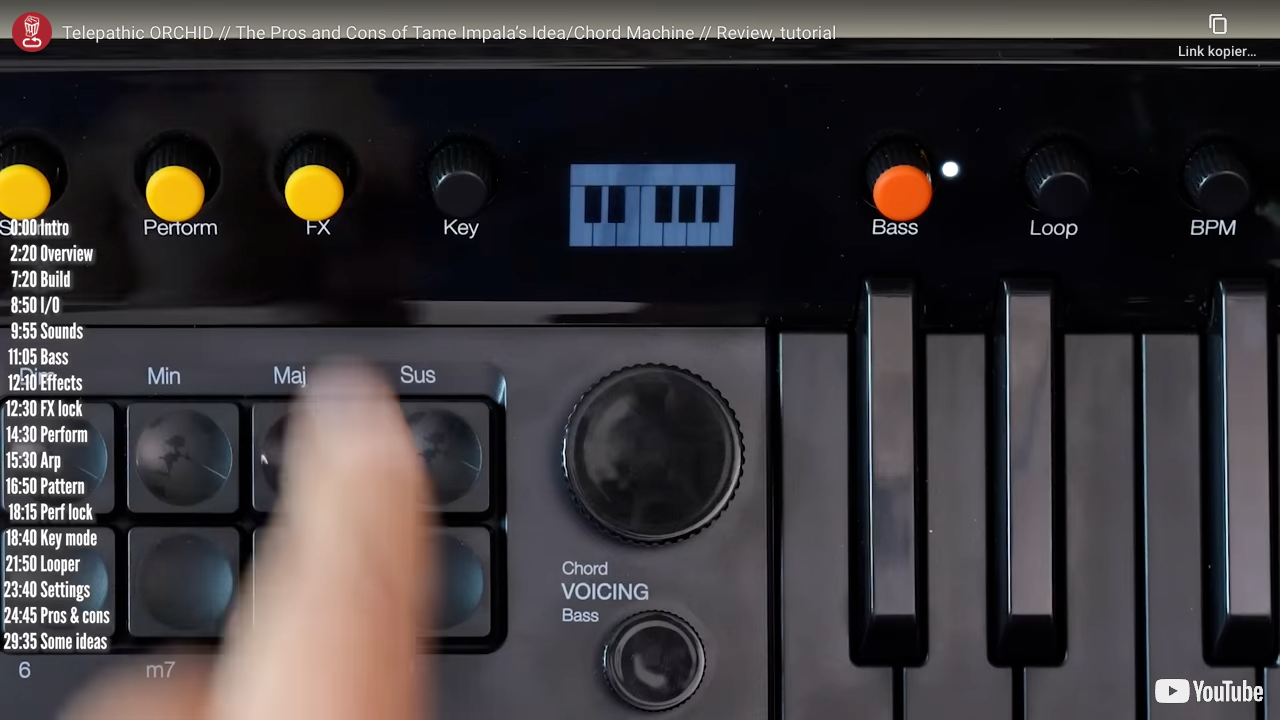Unleashing musical mayhem, loopop dives headfirst into the Telepathic Orchid’s world, a gear that juggles both genius and absurdity. Will its melodic wizardry outshine its quirks? Find out as loopop wrestles with its capabilities and limitations, showing us a device that might just be the holy grail for the avant-garde riff raff.

The Hybrid Musical Idea Generator: A Brief Overview
Every new track starts somewhere, and for loopop, it kicks off with the Telepathic Orchid, a machine aptly described as a hybrid musical idea generator. Built by Telepathic Instruments, this device acts as more than just a MIDI controller; it’s got its own built-in synth engine, MIDI looper, speakers, and battery. It’s designed to help users craft glorious chord progressions and dive into the complex world of musical ideas, making it a potent ally for music theory buffs and experimental musos alike.

"Orchid from Telepathic Instruments is the newest of a growing number of software and hardware tools built to help us come up with musical ideas."
Key Features for the Brave Synth Explorers

"Orchid is designed for standalone use, it has its own synth engine, which you've been hearing up until now."
If you’re looking for a gadget that’s a proper geezer – loud, rough, and unapologetically in your face – the Orchid’s synth engine brings 50 chord sounds and 12 bass presets to the table. These are not merely bundled for aesthetics; they’re integral to leveraging the device’s full potential. The MIDI looper isn’t audio-based, giving users the chance to needle through their sound options, overdub, and explore what timbres tickle their fancy. As loopop illustrated, the Orchid’s quiver of performance modes, which includes arpeggiators and strum effects, offers musicians a playground of sonic wickedness to explore.
Competition: Friends or Foes?
When stacked against its rivals, Orchid faces a brash world of competition from similar gadgets like Scalar and Captain Chords on the software front, and hardware contenders including the Theoryboard or Chord Machine. But does it hold its own? According to loopop, its standalone nature and portable design make it a hefty contender. Yet, question marks hang over its ability to seamlessly faint into an artist’s complete workflow given its lack of sound-saving functionality and MIDI sync issues. The pros of its engaging and exploratory nature are occasionally overshadowed by its operational limitations.

"There are a broad range of ways to come up with musical ideas."
Limitations that Tax Your Creative Mojo

"It would also be nice to have support for more keys than just major and minor, for more exotic moods like Hungarian or double harmonic scales."
Sound design devotees might hit some speed bumps with Orchid. As loopop highlights, the presets are baked in with no options for custom tweaks on LFOs, filters, or envelopes. It seems like a proper cock-up for synth tinkerers who thrive on bending sound to their will. Furthermore, Orchid’s MIDI input limitations might leave users grasping for more customization. Loop saving is another lacking feature, requiring external solutions for those precious loops, unless naturally, one fancies scribbling them down in an old-school notebook.
A Symphony of Showdowns and Soundscapes
In a performance demo reminiscent of an electronic cabaret, loopop demonstrates the Orchid’s potential. By dabbling with its presets and utilising its dynamic performance modes, he reveals how able the Orchid is at delivering soundscapes that are both lush and varied. However, the device’s inability to save loops or maintain chord names post-recording turns a symphony of sound into a logistic nightmare, hinting at the need for improvement. Despite its limitations, it teases enough to crave the next firmware update, promising a flood of creativity unleashed.
Latest articles
Watch on YouTube:
https://www.youtube.com/loopop
Links from loopop: